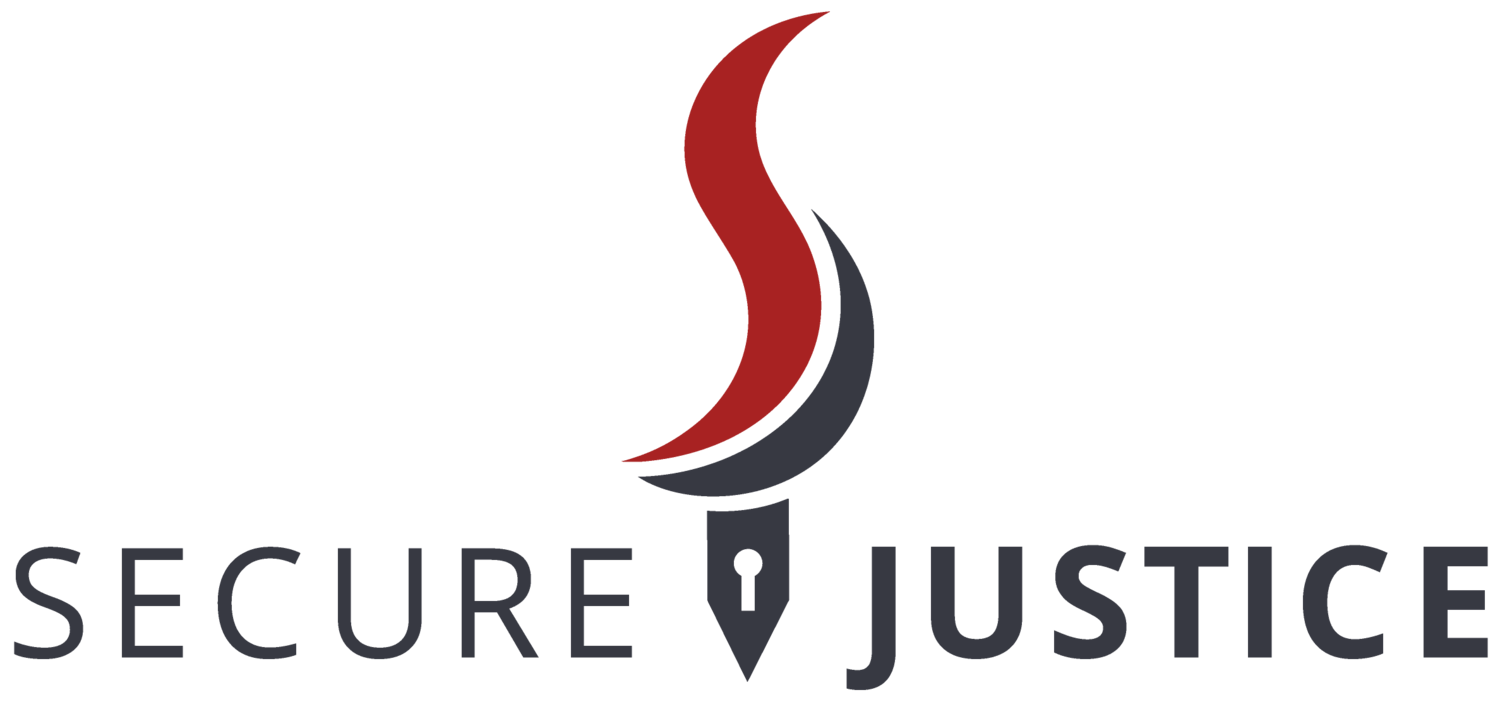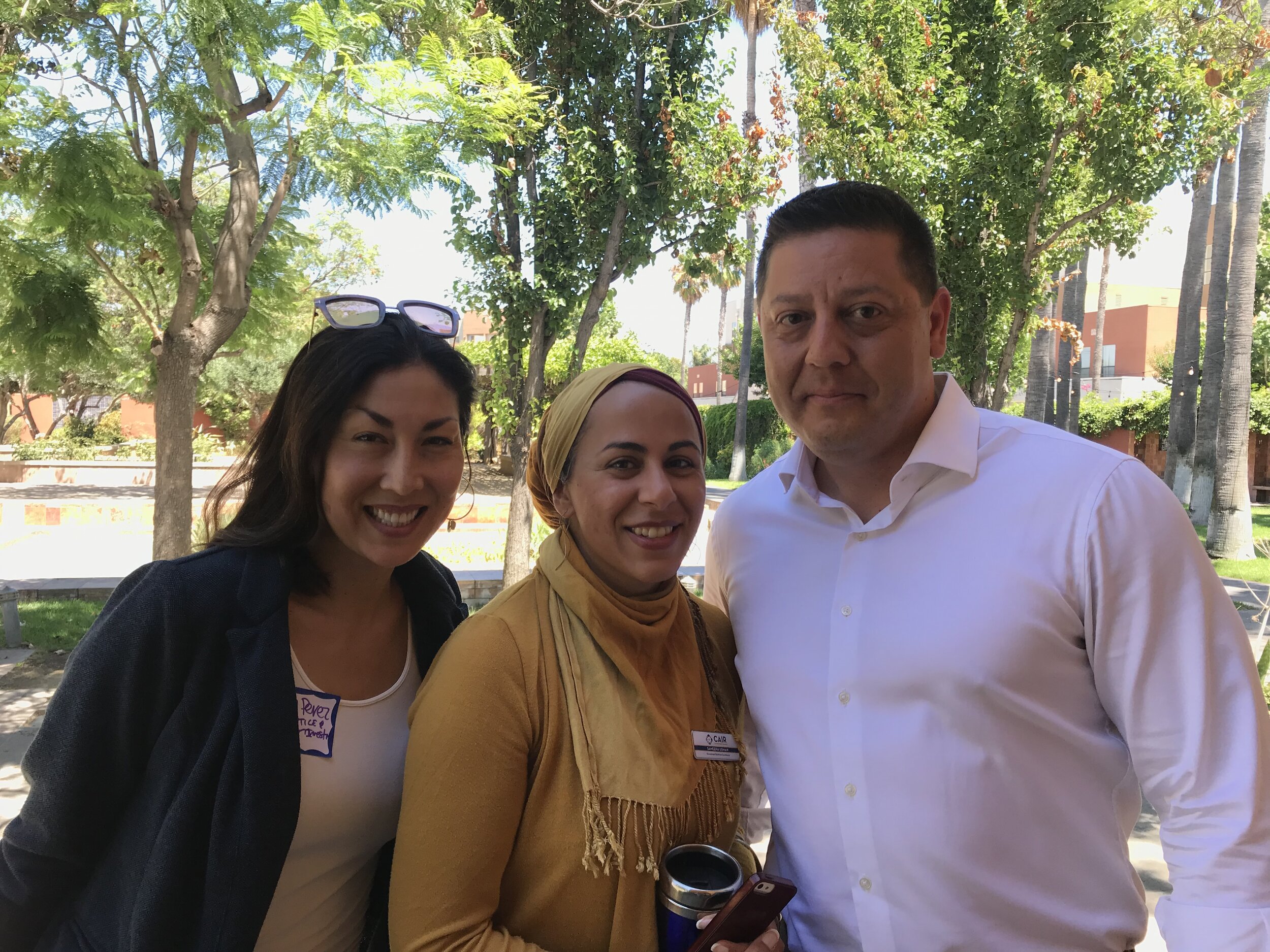2019/2020 Year(s) In Review
We hope that you are healthy and surviving the tumultuous year that just ended. We don’t really have a frame of reference for what occurred in 2020, as the Trump administration wreaked havoc on our democracy and civic institutions, surveillance technology became more powerful and widespread, the rise of white supremacy exploded across the globe and domestically, and the Covid-19 pandemic opened doors for technology vendors to pivot towards “health care” applications, which are somewhat similar to the tools that law enforcement uses except that in this scenario, our most personal information is always at risk – our biometric data and medical records.
As state and local governments have assumed the burden of leadership in regulating technology in the absence of any federal urgency to do so, we expect things at Secure Justice to be even busier in 2021 as we increase our workload across the country to address the increasing concerns about the unregulated technological creep into our lives. Secure Justice is not anti-technology nor anti-innovation, but the ‘wild west’ nature of surveillance tech and data mining in both the public and private sectors means that there are many opportunities for the expertise at Secure Justice to advise and assist municipalities as they begin to address the concerns that many of the below jurisdictions began tackling a few years ago, often with our help and at our urging.
Since our incorporation at the end of 2018, Secure Justice materially participated in the following:
BART
· Worked with staff to modify a boilerplate memorandum of understanding with a local federal-state-local fusion (NCRIC), to become the first NCRIC partner to firewall data from federal immigration agencies.
· Worked with staff to draft an automated license plate reader policy that shortened data retention to 30 days.
Berkeley
· Enactment of a Sanctuary Contracting ordinance (written by ED Brian Hofer), prohibiting the award of municipal contracts to vendors that supply data or extreme vetting analytics to ICE or CBP. The ordinance was sponsored by Council Member Harrison.
· Enactment of an ordinance amendment prohibiting the city’s use of facial recognition technology (co-written by ED Brian Hofer). The ordinance was sponsored by Council Members Harrison, Bartlett, and Davila.
Emeryville
· A coalition led by Secure Justice helped convince the City Council to support Council Member Bauter’s motion to deny a contract to Vigilant Solutions, due to their data sharing arrangement with ICE.
Oakland
· Enactment of a true “no cooperation with ICE” Sanctuary City Ordinance, the first of it’s kind in the country (co-written by ED Brian Hofer and advisory member Jackie Gonzalez). The ordinance was sponsored by Council Members Kaplan and Brooks.
· Enactment of a Sanctuary Contracting ordinance (written by ED Brian Hofer) prohibiting the award of municipal contracts to vendors that supply data, extreme vetting analytics, or detention facility support to ICE, CBP, or ORR.
· Enactment of an ordinance amendment prohibiting the city’s use of facial recognition technology (co-written by ED Brian Hofer, and advisory member Heather Patterson). The ordinance was sponsored by Council Member Kaplan.
· Termination of a task force relationship with the FBI’s Joint Terrorism Task Force, due to many documented human rights violations. The resolution was sponsored by Council Member Kaplan.
· Enactment of an ordinance amendment prohibiting the city’s use of predictive policing analytics and biometric surveillance technology, the first jurisdiction in the country to do so (co-written by ED Brian Hofer, and advisory member Heather Patterson)
Richmond
· The first city to enact the Sanctuary Contracting ordinance (written by ED Brian Hofer), our coalition helped convince the City Council to deny a contract to Vigilant Solutions due to their data sharing arrangement with ICE
San Francisco
· Enactment of a surveillance technology vetting framework, including a first-in-the-nation ban on facial recognition (co-written by ED Brian Hofer). The ordinance was sponsored by Supervisor Peskin.
National Association of Criminal Defense Lawyers (NACDL) - Predictive Policing (with advisory member Jumana Musa)
Cleveland Marshall College of Law - Facial Recognition and Privacy
The Atlantic: CityLab DC/Bloomberg, Aspen
Library Freedom Project – Influencing Local Policy
MetroLab – Trust in the Public Realm (with advisory member Kelsey Finch)
Anti-Surveillance in our Borderlands (with advisory member Mejgan Afshan)
Brennan Center – Policing Race and Technology
USF Center for Applied Data Ethics – Tech Policy Workshop
UC Berkeley Law School – AI and Facial Recognition
UC Berkeley Law School – Latinx Group/SB 54
UC Berkeley – Science Policy Group
Georgetown Law School – Facial Recognition Symposium
NYU Law School – Facial Recognition Roundtable
USC Law School – Privacy Policy and Law
Pacific School of Religion - Creating Democracy: Digital Technologies and Disenfranchised Communities
Support Life Foundation – Surveillance and Facial Recognition Technology
TrustSD – Responsible Technology Use Workshop (with advisory member Genevieve Jones-Wright)
New Orleans, LA – advised a local coalition on surveillance technology vetting reforms
Washington, D.C. - advised a local coalition on surveillance technology vetting reforms
Portland, OR – advised Commissioner Hardesty and Smart City PDX on surveillance technology vetting reforms, and prohibitions on private/public use of facial recognition technology; testified in support of the private/public prohibitions
Minneapolis, MN – advised a local coalition on surveillance technology vetting reforms
San Diego, CA - advised a local coalition and Council Member Montgomery Steppe on surveillance technology vetting reforms; having obtained one of two necessary votes from the full city council, San Diego would be the second jurisdiction in the nation to have an Oakland-style surveillance ordinance/privacy advisory board.
ACKNOWLEDGMENTS
Although the following accomplishments were performed separate from their capacity with Secure Justice, these wins are very noteworthy and in alignment with our vision and we’d like to recognize them for their success.
As co-founder of Immigrant Defense Advocates, attorney Jackie Gonzalez led the campaign advocating for AB32 (Bonta), which took effect January 1, 2020. The law prohibits the state of California from entering into or renewing contracts with for-profit prison vendors. In California, for-profit prisons primarily hold immigrants awaiting deportation.
The Trump Administration challenged the law in court by alleging that it interfered with federal immigration authority. Jackie provided oral argument in support of AB32. Ultimately, the Court ruled in favor of California. Read more about it here: https://imadvocates.org/immigrant-defense-advocates-and-immigrant-legal-defense-to-present-amicus-brief-in-ab-32-litigation/ and here: https://imadvocates.org/idas-oral-statement-to-the-court-on-ab-32/
Executive Director’s Note - When the Oakland “ICE raid” happened in August 2017, Jackie was my go to at Centro Legal De La Raza. She helped Oakland create the first true “no cooperation” Sanctuary City ordinance in the country, and helped expose the Oakland Police Chief’s multiple false statements about the raid.
One of my favorite speeches in Oakland City Council history, during the ICE raid investigation: https://www.youtube.com/watch?v=iCa9DG49Ux4
As someone that was formerly incarcerated, John Jones, III knows what it’s like attempting to re-enter mainstream society. The many barriers to entry at the federal, state, local and private/consumer level all cause extreme hardship to the individuals attempting to navigate employment, housing, and various administrative needs. In addition to increasing the risk of recidivism, these barriers continue as a form of punishment.
Similar to the “ban the box” movement on employment applications, John, Just Cities, and the Alameda County Fair Chance Housing Coalition were able to convince the cities of Oakland (sponsored by Council Members Fortunato Bas, Reid, Kalb and City Attorney Parker) and Berkeley (sponsored by Mayor Arreguin, Council Members Harrison, Davila, and Robinson) to enact a “Fair Chance Housing” ordinance that prohibits (with certain reasonable exceptions) the use of criminal background information to deny housing. https://www.sfchronicle.com/bayarea/article/Oakland-could-be-first-in-state-to-ban-criminal-14992798.php and https://www.sfchronicle.com/bayarea/article/Berkeley-bans-criminal-background-checks-in-most-15121949.php
As a portfolio manager at Harrington Investments, working for John Harrington, a leader in the fight to divest from apartheid South Africa, Susan Ozawa Perez has been instrumental in advocating for corporate change at a number of companies regarding human and civil rights concerns. Using various shareholder strategies and leveraging the socially responsible investment community to call for change from the inside, Susan and her team frequently introduce shareholder resolutions targeting companies like Amazon (Rekognition), Facebook (content moderation of political ads and politicians posts) and the largest financial institutions, JPMorgan Chase, Citigroup, Wells Fargo and Goldman Sachs (to mandate accountability all stakeholders including communities negatively impacted by their lending and financial operations).
She has also been active with colleagues in pushing for robust user identification and content moderation policies at the major social media platforms, including greater accountability.
Susan has also joined a number of divestment campaigns targeting tech companies developing surveillance technology and those working with ICE/CBP contracts. Like Jackie and AB32 discussed above, these campaigns alongside a groundswell of activism in civil society and on university campuses have caused almost all major lenders to abandon the for-profit prison industry and a number of large players in the facial recognition technology market have abandoned the technology, or voluntarily imposed a moratorium on selling their products.
We have gathered a remarkable group of talented individuals at Secure Justice that each bring different skill sets to the table, allowing us to provide legal, technical, and administrative expertise to advocates, elected officials, administrative staff, law enforcement, and community coalitions seeking to enact similar reform efforts in their respective localities. Please take time to review our bios and let us know if there is a particular need in your jurisdiction for help with legislative and policy writing and analysis, lobbying elected officials, building coalitions, community education and outreach, and understanding surveillance technologies and data sharing relationships. We’re here to assist you with the many complicated questions and concerns that will arise as these discussions begin in your community.
Finally, as a relatively new organization, your financial support is greatly needed and appreciated. We know that many folks have been financially harmed by the Covid-19 pandemic, and if you’re like us, you likely made more donations to elected officials this cycle than any other time in your life because the need to save our democracy was so serious. The most effective way you can help Secure Justice is with stability, by becoming a monthly sustaining donor in an amount that won’t cause you financial pain. Pick an amount comfortable enough that you can “set it and forget it.”
By having a consistent baseline to work with, we can continue advocating for more civilian oversight of surveillance technology, educate elected officials, train privacy commissioners and administrative staff, hold community forums and security training sessions, and continue the work that we’ve been so successful at.
Of course, any contribution will be helpful and we thank you in advance for any financial support that you can provide. You can make a one-time or recurring donation here: https://secure-justice.org/donate
Here’s to a better 2021!












